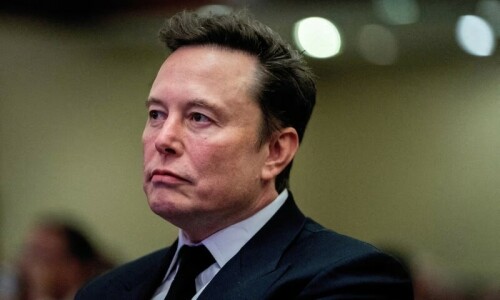KINSHASA: Opposition leader Felix Tshisekedi was on Thursday declared winner of DR Congo’s presidential election, but his victory was dismissed by the runner-up and questioned by the Catholic Church, clouding the vote’s legitimacy and hopes of peace.
In a pre-dawn announcement, election officials named Tshisekedi, son of the country’s long-term opposition leader, provisional winner of the troubled vote to replace President Joseph Kabila.
The news brought thousands of supporters onto the streets while others who had backed his opposition rival Martin Fayulu came out in protest. Four people died in unrest.
Fayulu, who came a close second, denounced the result as an “electoral coup”, The Democratic Republic of Congo’s influential Catholic church also said Tshisekedi’s victory did not tally with data collected by its own monitors.
“These results have nothing to do with the truth at the ballot box,” Fayulu told Radio France International. “They have stolen the Congolese people’s victory and the people will never accept that.”
At stake is political stewardship of the notoriously unstable central African nation, which has never known a peaceful transition of power since independence from Belgium in 1960.
Election chief Corneille Nangaa declared Tshisekedi the winner with 38.57 per cent of the vote, just ahead of Fayulu with 34.8 per cent.
Kabila’s preferred successor, Emmanuel Ramazani Shadary, came a distant third with 23.8 per cent.
The last two elections in 2006 and 2011, both of which were won by Kabila, were marred by bloodshed, and many fear a repeat of the violence if the result lacks credibility.
In Kinshasa, the mood was sombre, with representatives of the Catholic church openly disputing the figures released by the Independent National Election Commission (CENI).
“The result of the presidential election as published by CENI does not correspond with the data collected by our observer mission from polling stations and counting centres,” said Father Donatien Nshole, spokesman for CENCO, which represents the country’s Catholic bishops.
The Church has long been pressing for the departure of Kabila, who has ruled the country with an iron fist since 2001, well beyond the limit of his second and final term in December 2016.
Kabila had been due to step down two years ago but held on to power, sparking a political crisis and protests that were bloodily repressed.
“Kabila did not want to risk announcing Shadary as the winner, which would have triggered violent protests and international condemnation,” said Robert Besseling, executive director of risk consultancy EXX Africa.
“Instead, he chose to split the opposition by creating a power-sharing deal with Tshisekedi.” Tshisekedi “owes his ascendancy to power to Kabila’s control of the electoral commission”, and in exchange Kabila would look for immunity from any prosecution or asset seizure after handing over power, Besseling said.
Published in Dawn, January 11th, 2019
















































Dear visitor, the comments section is undergoing an overhaul and will return soon.